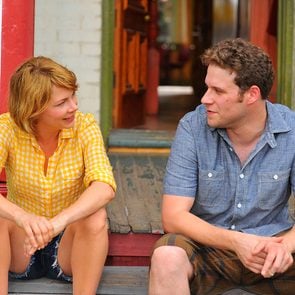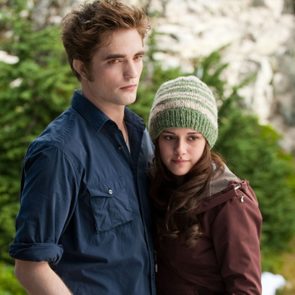For the Love of Cinema
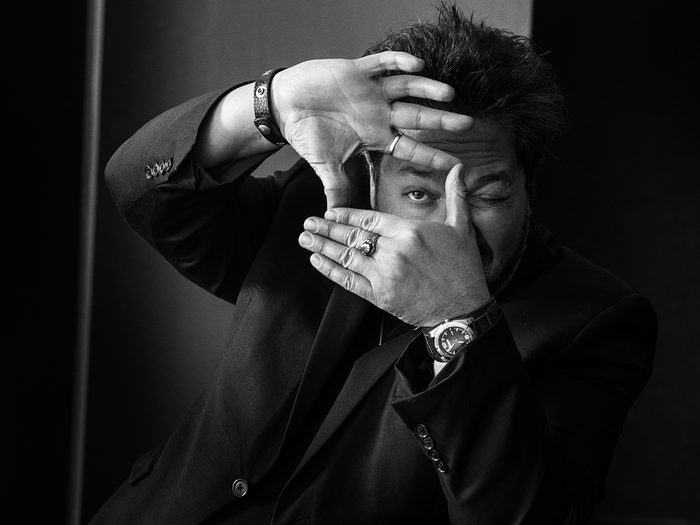
Director Sergio Navarretta recounts his journey from humble beginnings to big screens.
My parents landed in Canada from a small town near Naples in February 1969. They’d sold their only real possession—a bedroom set—and arrived with $200 in their pockets. They faced harsh, snowy winters for the first time and worked hard at whatever jobs they could find.
I grew up in a tiny apartment in the multicultural neighbourhood of Mimico in Toronto. My family was open, curious and inclusive. To me, being Canadian meant that we were the total sum of our parts. Still, I shared some of my parents’ feelings of loneliness and displacement. I went to kindergarten speaking mostly English with some Italian sprinkled in, but I was not amongst the majority in school, and I was constantly being reminded by the class bullies that I was not Canadian. I recall being told to go back to my country—yet Canada was my country. I was born here. This experience instilled a sense of deep disorientation, and I struggled with this identity crisis for much of my life. I would even hide in the bathroom to have my lunch for fear of being ridiculed or, worse, beaten up.
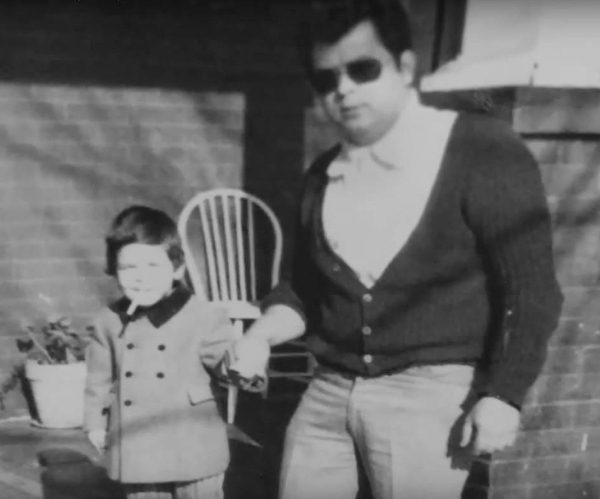
To add to my confusion, my family and I would travel to Italy in the summers to visit relatives. As much as Italy felt familiar and comforting, I did not fully relate to its way of life and culture. Like so many hyphenated Canadians, I felt as though I was split between two worlds, and I longed to belong somewhere.
Over time, my mother became a successful entrepreneur and my dad a powerful figure in the labour movement. We were encouraged to assimilate and respect the Canadian way of life. My parents valued education, and my father believed that getting a secure job with a pension was the only way to be successful and fulfilled. He felt it was important to slowly build security over a lifetime, without taking too many risks. My mother, on the other hand, was more of a calculated risk-taker and artistically inclined. She loved music and enrolled me in lessons when I was five, which set me on a very different path from the one my father had envisioned for me. Even now, music plays such a big part in my process. From the moment of inception of every film, I think about the score, the melodies, mood and tone.
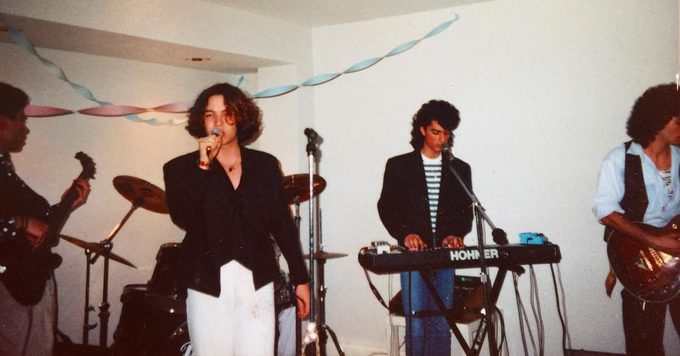
Finding Film
I quickly learned that music—then later film and the arts in general—would be my escape. I will never forget watching my parents’ eyes light up as I performed at my vocal recitals. It reminded me of the times they would laugh joyously or be deeply moved watching movies at the San Carlino cinema in the Italian section of town, which we often visited on weekends. Whether it was a recital for the Royal Conservatory of Music, a magic show in my backyard where I would charge neighbourhood kids 25 cents, a talent show where I would impersonate Prince or an elaborate school play, I fell in love with using the arts to create an emotional response in people, especially the ones I loved most.
I also wrote scripts as a kid, mostly stories that mimicked the films I loved at the time, such as E.T. and Star Wars. My father owned a Super 8mm camera I played around with. The most state-of-the-art equipment he owned was a VHS camera and recorder that was so heavy, I sometimes wonder how I managed to drag it to family vacations. My dad loved to tinker with technology, and I remember how exciting it was to film something, wait several weeks to have it processed and then set up a screening at the house on the projector for friends and family. In an era before Skype and Facetime, I remember seeing 8mm film of relatives in Italy sending messages and greetings. These were highly emotional moments in my house.
As a teen and into my early 20s, I owned several businesses, including a retail store that featured my own fashion line, vintage clothing and Canadian designers. I owned a club promotion company as well as a landscaping company to make extra money during the summers. I organized fundraisers for the Toronto People with AIDS Foundation and the local food bank. I joined a band in my teens, and we performed original songs and covers. Later, after performing at several smoky bars and hosting karaoke nights, I launched a record label of my own called Trinity Records to help promote other artists. My varied experiences over the years helped me develop skill sets that would eventually inform my work in ways that I could never have predicted. My experiences also helped me build the courage I would need to take creative risks, and the willingness to do things that at first blush might seem unreasonable.
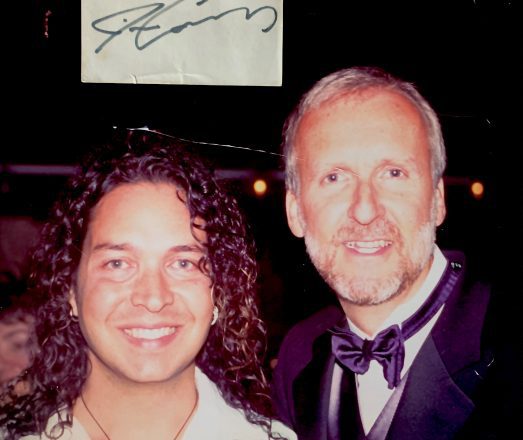
Although I had dreams of becoming a filmmaker, I did not have any direct connection to the industry as a young adult. I didn’t know anyone who worked in movies, and there was no clear path to achieving such a goal. Certainly, like many children of immigrants, I thought movies were only made in Hollywood. It wasn’t until I travelled to my first film festival, determined to meet director James Cameron, that my journey would start to become clear. It was at the height of the Titanic frenzy, and Cameron was attending a homecoming presentation at a small festival in Niagara Falls. During his opening speech, he remarked that growing up in a small town in Canada was a far cry from Hollywood—until he went there and realized that everyone put on their pants one leg at a time. It was as if he were speaking to me. I turned to my friend and said, “I’m going to meet James Cameron.”
Mobs of fans and journalists waited outside. He was whisked away by handlers, and by the time I saw Cameron enter his limo, my dream of meeting him was dwindling. Feeling dejected, we walked to a hotel to use the bathroom. As I ambled around the corner of the parking lot, the door opened, and there was James Cameron himself.
“Hey, James! I want to be a filmmaker,” I blurted.
He replied without hesitation: “Then pick up a camera and shoot something.” We both laughed. He posed for a photo and off he went.
His advice was simple, and it ignited something in me I will never forget. Here was a small-town Canadian boy who had made the biggest movie of all time, winning 11 Oscars, telling me I could do it. Why wouldn’t I believe him? I was young and naïve, and the cynicism of the world had not yet set in. Suddenly, anything was possible.
From Hogtown to Hollywood
Meeting James Cameron set in motion a chain reaction of serendipitous encounters with many of my Hollywood heroes. Most recently, Alexander Payne graciously talked me through the prep stage of my latest film, The Cuban. His advice was clear and simple: tell the truth when communicating with legendary actors like Louis Gossett Jr. and become an observer.
Being part of a community of like-minded individuals is the most gratifying part of the business. The fact that I can meet filmmakers from anywhere and speak the universal language of cinema brings the world closer together. Film becomes a window onto the world where we can share common (and not so common) experiences.
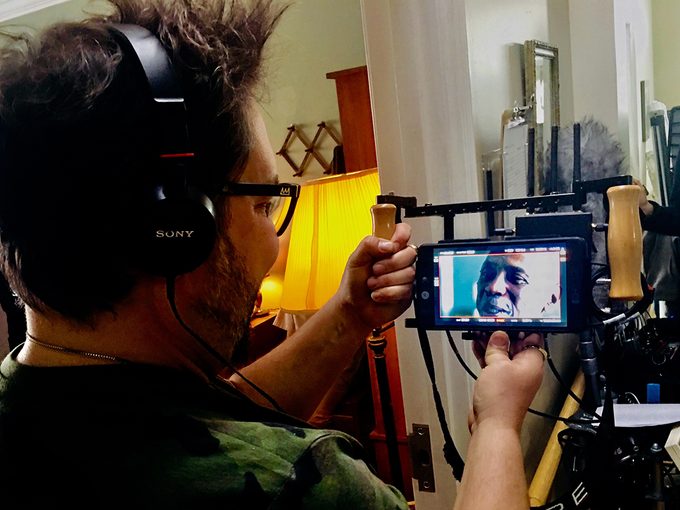
Whether they know it or not, each of my mentors played a role in continuing to inspire me in my darkest hours. I learned that words matter, and what we choose to say to each other matters. For this reason, I now dedicate some time to mentoring emerging filmmakers, and I am mindful of how impactful my advice can potentially be. Sometimes all a person needs to hear is that their voice matters and to never give up. Beyond technical guidance, artists need to know that people before them have experienced the same struggles. It sounds cliché, but I am living proof that giving someone a boost is better than a kick in the ass, as legendary Canadian entertainment journalist Brian Linehan once told me.
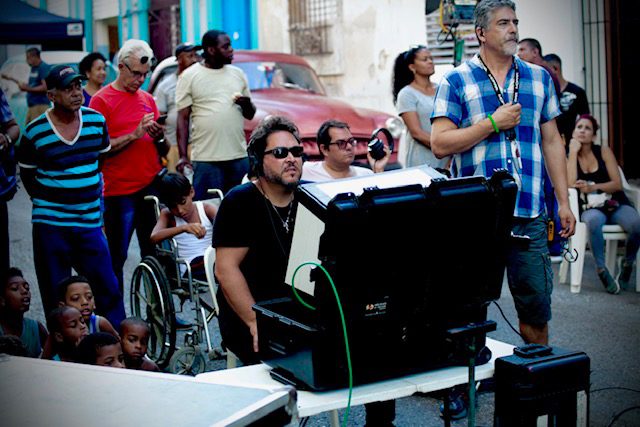
When I made my first film, Over a Small Cup of Coffee, it was shot on 35mm film, and everyone on set had little to no experience— myself included. The elation of the whole experience was inexplicable, from the very first meeting at a bar in downtown Toronto, where over 100 people showed up to volunteer, to the arduous shooting. The film premiered at the iconic Egyptian Theatre in Hollywood, and as I looked around the sold-out screening, I saw actors I admired, such as Dom DeLuise and Vincent Schiavelli.
This past year gave me a lot of time to reflect upon and realign my values and priorities. We developed a new way of releasing movies during a pandemic, and with our distributors released The Cuban in over 50 cities in the U.S. via virtual cinema, and in drive-in and indoor theatres across Canada. Our virtual press tour lasted months, and we even ran an Oscar nomination campaign, all from the comfort of my home office. The whole experience was not only a dream come true, it far exceeded my expectations.
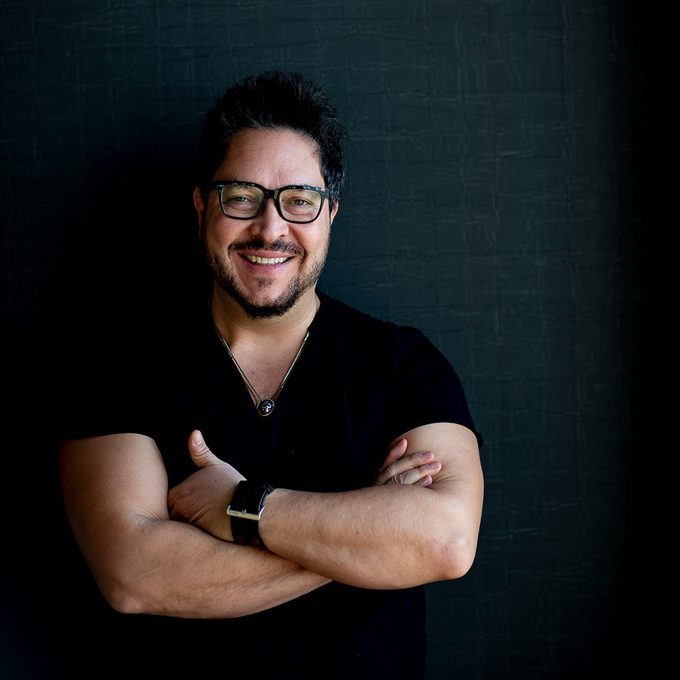
Creating meaningful content that has the potential to make an impact is crucial to me and aligns with the mission statement of my production company, S.N.A.P. Films Inc. Giving back and supporting fellow artists at all stages of their careers is also a big part of my mission, and this journey has led me to develop and launch my new podcast, Creativity Unleashed. Intended to be a resource for creatives, it will help people learn from high-level performers and coaches in all sectors, even outside entertainment. Everything I continue to develop feeds my burning desire to foster my creative spirit and, most of all, continue to entertain people and make them feel something.
Next, check out the best drive-in theatres across Canada.
